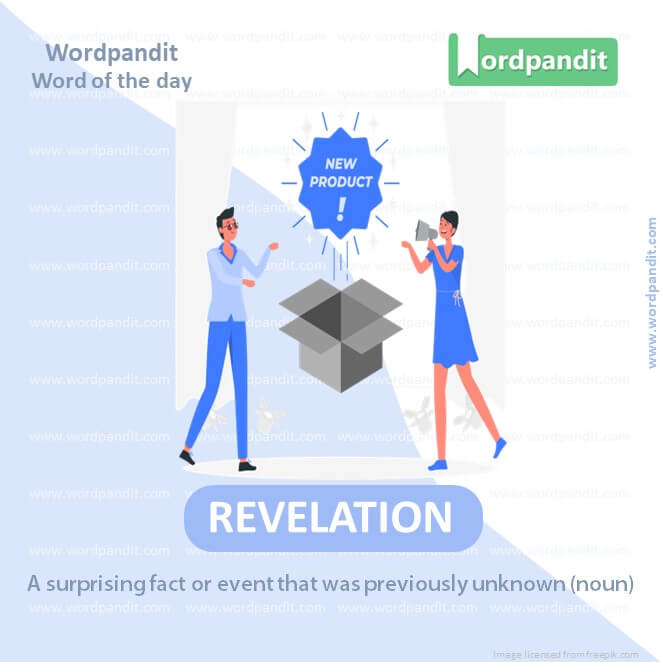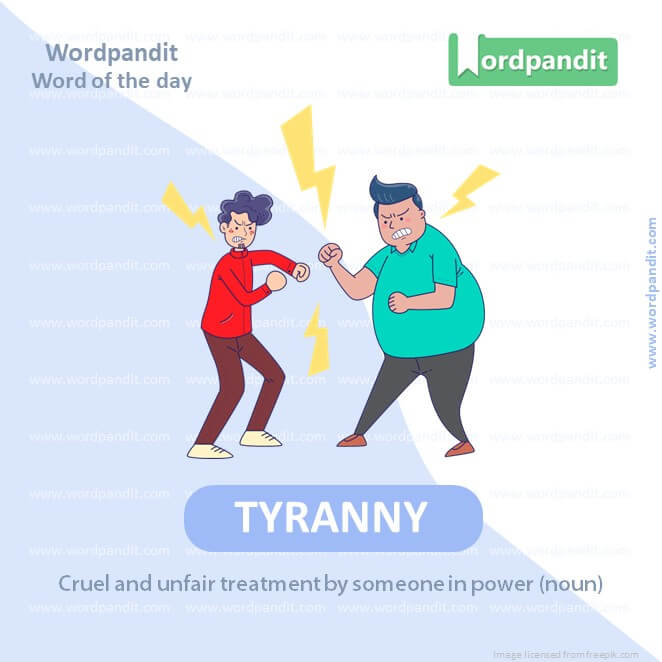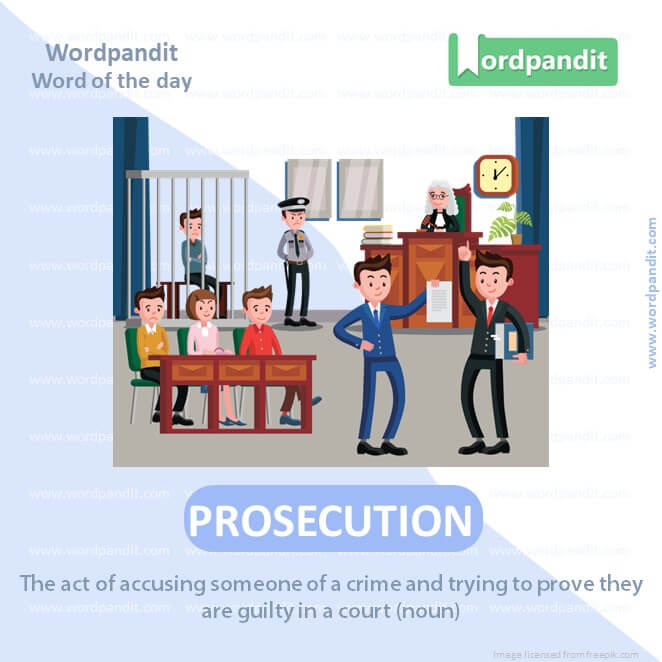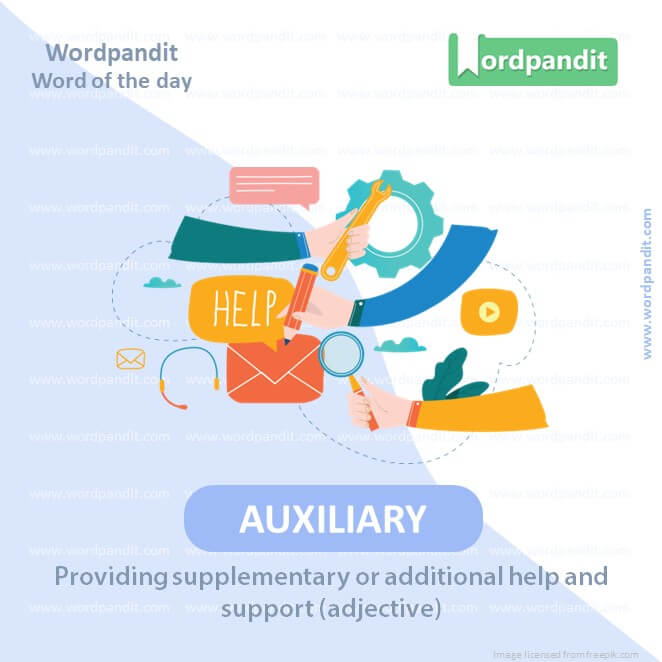Daily Vocabulary Words: List of Daily Used Words in Leading International Newspapers
Hi there. Welcome to this special section @ Wordpandit.
Our endeavour here is very simple: to highlight important daily vocabulary words, which you would come across in leading newspapers in the country. We have included the following newspapers in our selection:
• The New York Times
• The Washington Post
• Scientific American
• BBC
• The Guardian
• Psychology Today
• Wall Street Journal
• The Economist
We are putting in extensive work for developing your vocabulary. All you have got to do is be regular with this section and check out this post on a daily basis. This is your repository of words that are commonly used and essentially, we are posting a list of daily used words. Hence, this has significant practical application as it teaches you words that are used commonly in leading publications mentioned above.
Visit the website daily to learn words from leading international newspapers.
WORD-1: HOLOCAUST
CONTEXT: In the mid-1980s, as Holocaust “awareness” bloomed in western societies, Britain woke up to the revelation that, for 40 years or so, it had provided a safe haven for refugees from eastern Europe whose participation in the genocide had rarely, if ever, come under scrutiny. It was a deeply uncomfortable awakening for a country that had prided itself in “standing alone” against Hitler’s tyranny.
SOURCE: The Guardian
EXPLANATORY PARAGRAPH: Holocaust is a very sad word, dear. It means a time when a lot of people were hurt or killed, especially because of their beliefs or who they were. It’s like if someone broke all the toys in the playroom on purpose. It’s a word we use to remember and learn from the past so that such things don’t happen again.
MEANING: A large-scale destruction, especially by fire, or the mass slaughter of a group of people, especially Jews during World War II. (noun)
PRONUNCIATION: HALL-uh-kawst
SYNONYMS: Catastrophe, massacre, devastation, annihilation, pogrom, disaster, destruction
USAGE EXAMPLE:
1. The Holocaust is a dark chapter in world history.
2. We should remember the victims of the Holocaust.
3. Holocaust survivors shared their heart-wrenching tales.
4. Museums about the Holocaust teach us about the importance of tolerance.

WORD-2: REVELATION
CONTEXT: In the mid-1980s, as Holocaust “awareness” bloomed in western societies, Britain woke up to the revelation that, for 40 years or so, it had provided a safe haven for refugees from eastern Europe whose participation in the genocide had rarely, if ever, come under scrutiny. It was a deeply uncomfortable awakening for a country that had prided itself in “standing alone” against Hitler’s tyranny.
SOURCE: The Guardian
EXPLANATORY PARAGRAPH: Revelation is like a big surprise in a story. It’s when you find out something you didn’t know before, like discovering a secret toy hidden at the back of your cupboard.
MEANING: A surprising fact or event that was previously unknown. (noun)
PRONUNCIATION: rev-uh-LAY-shun
SYNONYMS: Disclosure, discovery, surprise, unveiling, expose, admission, announcement
USAGE EXAMPLE:
1. The detective’s revelation solved the mystery.
2. Her diary was full of personal revelations.
3. The revelation that he was the thief shocked everyone.
4. The magic trick ended with a stunning revelation.
WORD-3: GENOCIDE
CONTEXT: In the mid-1980s, as Holocaust “awareness” bloomed in western societies, Britain woke up to the revelation that, for 40 years or so, it had provided a safe haven for refugees from eastern Europe whose participation in the genocide had rarely, if ever, come under scrutiny. It was a deeply uncomfortable awakening for a country that had prided itself in “standing alone” against Hitler’s tyranny.
SOURCE: The Guardian
EXPLANATORY PARAGRAPH: Genocide is another sad word. It means when a big group of people is hurt or killed because of their race, religion, or where they come from. It’s like if someone wanted to hurt all the blue toys just because they were blue.
MEANING: The deliberate killing of a large group of people, especially those of a certain race or nation. (noun)
PRONUNCIATION: JEN-uh-side
SYNONYMS: Massacre, extermination, annihilation, slaughter, elimination, eradication
USAGE EXAMPLE:
1. Genocide is a crime against humanity.
2. History has seen several cases of genocide.
3. International courts try to prevent and punish genocide.
4. It’s important to educate others about the horrors of genocide.

WORD-4: TYRANNY
CONTEXT: In the mid-1980s, as Holocaust “awareness” bloomed in western societies, Britain woke up to the revelation that, for 40 years or so, it had provided a safe haven for refugees from eastern Europe whose participation in the genocide had rarely, if ever, come under scrutiny. It was a deeply uncomfortable awakening for a country that had prided itself in “standing alone” against Hitler’s tyranny.
SOURCE: The Guardian
EXPLANATORY PARAGRAPH: Tyranny is when someone very powerful is mean and unfair to others. It’s like if there was a big bully in the playground who wouldn’t let anyone play and took all the toys for themselves.
MEANING: Cruel and unfair treatment by someone in power. (noun)
PRONUNCIATION: TIR-uh-nee
SYNONYMS: Oppression, dictatorship, despotism, authoritarianism, domination, autocracy
USAGE EXAMPLE:
1. The people lived under the tyranny of the cruel king.
2. We must stand against tyranny in all its forms.
3. Tyranny often leads to revolutions.
4. The story depicts the struggle against tyranny.

WORD-5: PROSECUTION
CONTEXT: The passage of the War Crimes Act 1991 raised the possibility of putting on trial those who had not been British citizens or residents at the time the crimes were committed. The outcome was the prosecution in 1995 of Szymon Serafinowicz, a Belarusian living in Banstead, Surrey, although his trial collapsed when the jury ruled he was mentally unfit, and the conviction in 1999 of one auxiliary policeman, Anthony (Andrzej) Sawoniuk, for murdering Jews in his native Belarus. By then, Scotland Yard’s war crimes unit had been mothballed, and political attention switched to enshrining remembrance, in the form of the first Holocaust Memorial Day.
SOURCE: The Guardian
EXPLANATORY PARAGRAPH: Prosecution is when people try to prove that someone did something wrong. It’s like when someone breaks a rule in a game, and others want to show that they cheated.
MEANING: The act of accusing someone of a crime and trying to prove they are guilty in a court. (noun)
PRONUNCIATION: pross-eh-KYOO-shun
SYNONYMS: Legal action, lawsuit, trial, litigation, indictment, charge
USAGE EXAMPLE:
1. The prosecution presented strong evidence in court.
2. He faced prosecution for stealing.
3. The case was dropped due to lack of evidence for prosecution.
4. The prosecution team was well-prepared for the trial.

WORD-6: CONVICTION
CONTEXT: The passage of the War Crimes Act 1991 raised the possibility of putting on trial those who had not been British citizens or residents at the time the crimes were committed. The outcome was the prosecution in 1995 of Szymon Serafinowicz, a Belarusian living in Banstead, Surrey, although his trial collapsed when the jury ruled he was mentally unfit, and the conviction in 1999 of one auxiliary policeman, Anthony (Andrzej) Sawoniuk, for murdering Jews in his native Belarus. By then, Scotland Yard’s war crimes unit had been mothballed, and political attention switched to enshrining remembrance, in the form of the first Holocaust Memorial Day.
SOURCE: The Guardian
EXPLANATORY PARAGRAPH: Conviction can mean two things. One is when someone is told they did something wrong by a court. The other is when you really, really believe in something, like how you might believe that chocolate is the best flavor!
MEANING: 1. A judgment that someone is guilty of a crime. (noun)
2. A strong belief or opinion. (noun)
PRONUNCIATION: kun-VIK-shun
SYNONYMS: 1. Verdict, judgment, sentence, ruling
2. Belief, principle, confidence, certainty, assurance, faith
USAGE EXAMPLE:
1. He has a conviction for theft.
2. Her conviction was overturned on appeal.
3. He spoke with conviction about saving the environment.
4. Her conviction that she could succeed inspired others.

WORD-7: AUXILIARY
CONTEXT: The passage of the War Crimes Act 1991 raised the possibility of putting on trial those who had not been British citizens or residents at the time the crimes were committed. The outcome was the prosecution in 1995 of Szymon Serafinowicz, a Belarusian living in Banstead, Surrey, although his trial collapsed when the jury ruled he was mentally unfit, and the conviction in 1999 of one auxiliary policeman, Anthony (Andrzej) Sawoniuk, for murdering Jews in his native Belarus. By then, Scotland Yard’s war crimes unit had been mothballed, and political attention switched to enshrining remembrance, in the form of the first Holocaust Memorial Day.
SOURCE: The Guardian
EXPLANATORY PARAGRAPH: Auxiliary means something that helps or supports. Imagine you have a small toy that helps your big toy in a game; that small toy is like an auxiliary to the big one.
MEANING: Providing supplementary or additional help and support. (adjective)
PRONUNCIATION: awk-SIL-yuh-ree
SYNONYMS: Supporting, supplementary, backup, secondary, helping, additional, reserve
USAGE EXAMPLE:
1. The hospital opened an auxiliary unit for patients.
2. The machine has an auxiliary power source.
3. Auxiliary police were called during the emergency.
4. She volunteered in the auxiliary fire brigade.
WORD-8: NATIVE
CONTEXT: The passage of the War Crimes Act 1991 raised the possibility of putting on trial those who had not been British citizens or residents at the time the crimes were committed. The outcome was the prosecution in 1995 of Szymon Serafinowicz, a Belarusian living in Banstead, Surrey, although his trial collapsed when the jury ruled he was mentally unfit, and the conviction in 1999 of one auxiliary policeman, Anthony (Andrzej) Sawoniuk, for murdering Jews in his native Belarus. By then, Scotland Yard’s war crimes unit had been mothballed, and political attention switched to enshrining remembrance, in the form of the first Holocaust Memorial Day.
SOURCE: The Guardian
EXPLANATORY PARAGRAPH: Native means something or someone that comes from a particular place. Like if you were born in a toy land, then you would be a native toy of that land.
MEANING: Belonging to a particular place by birth or origin. (adjective)
PRONUNCIATION: NAY-tiv
SYNONYMS: Indigenous, original, local, homegrown, endemic, born, domestic
USAGE EXAMPLE:
1. She is a native of France.
2. The flower is native to this region.
3. He speaks his native language fluently.
4. The island is home to several native species.
WORD-9: MOTHBALLED
CONTEXT: The passage of the War Crimes Act 1991 raised the possibility of putting on trial those who had not been British citizens or residents at the time the crimes were committed. The outcome was the prosecution in 1995 of Szymon Serafinowicz, a Belarusian living in Banstead, Surrey, although his trial collapsed when the jury ruled he was mentally unfit, and the conviction in 1999 of one auxiliary policeman, Anthony (Andrzej) Sawoniuk, for murdering Jews in his native Belarus. By then, Scotland Yard’s war crimes unit had been mothballed, and political attention switched to enshrining remembrance, in the form of the first Holocaust Memorial Day.
SOURCE: The Guardian
EXPLANATORY PARAGRAPH: Mothballed means to put something away and not use it for a while. Like when you put your winter clothes away in summer, you’re kind of mothballing them.
MEANING: To put something into storage or suspend its use, usually for a period of time. (verb)
PRONUNCIATION: MOTH-bawld
SYNONYMS: Stored, shelved, stashed, preserved, kept, suspended, reserved
USAGE EXAMPLE:
1. The old ship was mothballed after the war.
2. Many projects were mothballed due to lack of funds.
3. They mothballed the factory until the economy improved.
4. The plane was mothballed for several years before being restored.
WORD-10: ENSHRINING
CONTEXT: The passage of the War Crimes Act 1991 raised the possibility of putting on trial those who had not been British citizens or residents at the time the crimes were committed. The outcome was the prosecution in 1995 of Szymon S
erafinowicz, a Belarusian living in Banstead, Surrey, although his trial collapsed when the jury ruled he was mentally unfit, and the conviction in 1999 of one auxiliary policeman, Anthony (Andrzej) Sawoniuk, for murdering Jews in his native Belarus. By then, Scotland Yard’s war crimes unit had been mothballed, and political attention switched to enshrining remembrance, in the form of the first Holocaust Memorial Day.
SOURCE: The Guardian
EXPLANATORY PARAGRAPH: Enshrining means to protect and respect something very much, like keeping it safe in a special place. It’s like when you put your most favorite toy in a special box so it stays safe and special.
MEANING: To preserve or cherish something in a form that ensures it will be protected and respected. (verb)
PRONUNCIATION: en-SHRYN
SYNONYMS: Preserve, consecrate, immortalize, honor, memorialize, sanctify, set apart
USAGE EXAMPLE:
1. The Constitution enshrines our fundamental rights.
2. The memories are enshrined in our hearts.
3. The church enshrines a sacred relic.
4. The museum enshrines artifacts from ancient civilizations.







